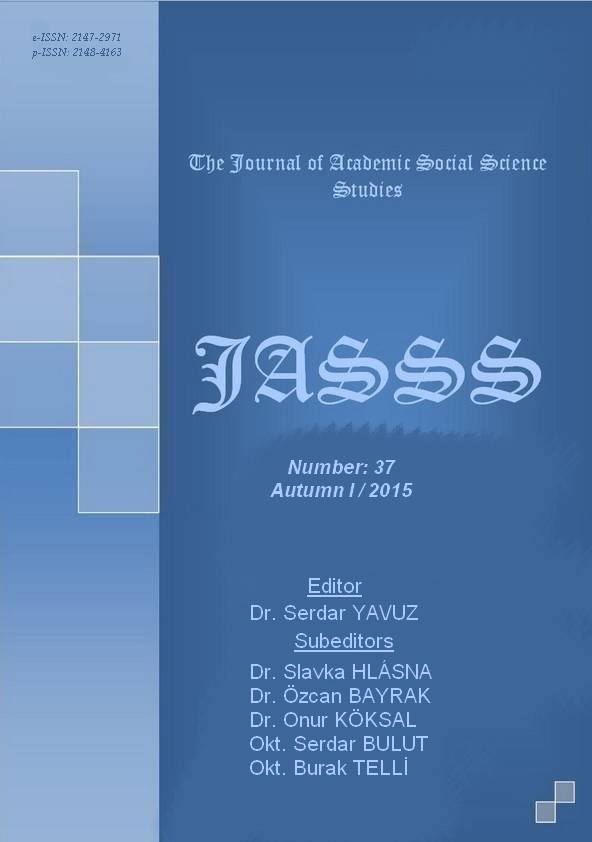Author :
Abstract
İlişkisel tarama modelinin kullanıldığı bu çalışmada, okul öncesi öğretmen adaylarının müzik öğretimine ilişkin tutumları belirlenmiş, tutumlarının çeşitli değişkenler açısından farklılık gösterip göstermediği incelenmiştir. Veri toplama aracı olarak Şeker ve Saygı (2013) tarafından geliştirilen “Müzik Öğretimine İlişkin Tutum Ölçeği”nin kullanıldığı çalışma, 2014-2015 eğitim-öğretim yılında Dicle Üniversitesi Ziya Gökalp Eğitim Fakültesinde öğrenim görmekte ve müzik eğitimi I-II derslerini almakta olan 53 “Okul Öncesi Öğretmenliği Anabilim Dalı” öğrencisi ile gerçekleştirilmiştir. Araştırma sonucunda katılımcıların müzik öğretimine önem verme ve müzik dersine ilişkin duygu ve düşünceler alt boyutlarına yönelik “olumlu”, müzik öğretimine ilişkin akademik çalışmalar yapma alt boyutlarına yönelik “kararsız” tutum sergiledikleri; cinsiyet, bölümde alınan müzik eğitimini yeterli görme, okul öncesi müzik öğretim programlarını inceleme ve yeni yöntem/teknik/yaklaşımlar hakkında bilgi sahibi olma değişkenlerinin, çalışma grubunun müzik öğretimine yönelik tutumları açısından anlamlı bir farklılık gösterdiği saptanmıştır.
Keywords
Abstract
In this study with relational screening model, attitudes of preschool teacher candidates to music education are designated; also it is studied whether their attitudes vary in terms of variables. In this study, the “Attitude Scale for Music Education” that was developed by Şeker and Saygı (2013) is used as data collection tool, 53 students in the “Department of Preschool Teaching”, who take I-II lessons of music education in the Faculty of Education “Ziya Gökalp”, the University of Dicle for 2014-2015 education period, have been subjected to this study. As a result of this study, it is concluded that the participants have “positive” attitudes to the sub-dimensions with regard to the importance, emotions and ideas for music lesson, but they have “hesitant” attitudes to the sub-dimensions with retard to academic studies for music education; that the variables such as gender, sufficient music education, research, knowledge of new method/technique/approaches in music education programs vary across the attitudes of study group to music education.





